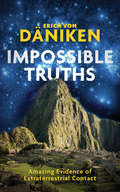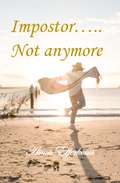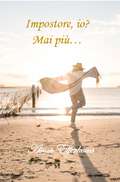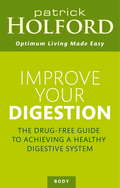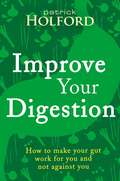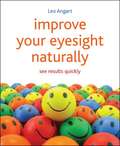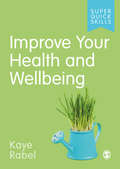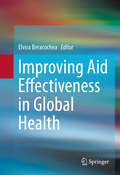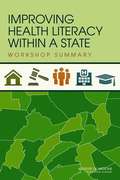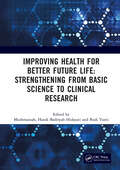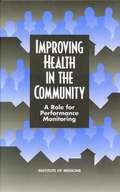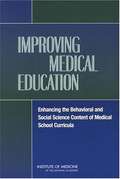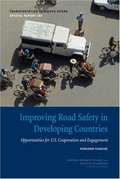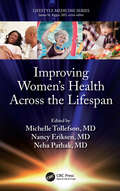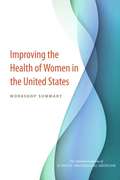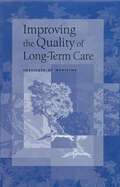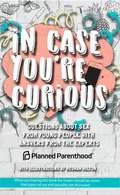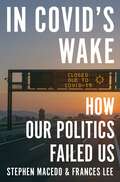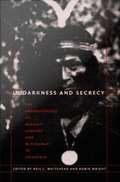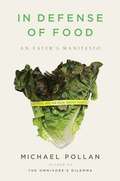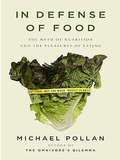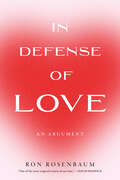- Table View
- List View
Impossible Truths: Amazing Evidence of Extraterrestrial Contact
by Erich Von DanikenA highly readable introduction to Erich von Däniken’s astounding theories about alien contact with the Earth from earliest times, updated with new evidence from his research into formerly inaccessible sites.Why do flying machines and astronauts appear in the artworks and sacred texts of all ancient cultures? What is the meaning of the immense earth drawings, impossible to view from the ground, that can be found all over the globe? How could prehistoric cultures have engraved diorite and other hard rock with such incredible precision without the use of modern tools? In this mind-bending new book, Erich von Däniken draws on his latest research to update his astounding theory that the inhabitants of other planets have kept in contact with humankind since the earliest times. • Assess for yourself the stunning visual evidence presented in some 200 photographs. • Examine previously unpublished testimony from expert informants. • Discover new research undertaken by von Däniken after the opening up of previously inaccessible regions, such as the jungle city “Buritaca 200” in Colombia.
Impostor, ¿yo? Nunca más...
by Asma ElferkoussEsta obra pretende desvelar el misterio de un autor al que le cuesta sentirse legítimo por sus obras. Decide confesar sus interioridades: una serie de experiencias personales en las que muchos podemos sentirnos identificados.
Impostor... Not anymore: How to rediscover your sense of legitimacy when you feel like an imposter...
by Asma ElferkoussBy sharing his experience, an author shares his pursuit for legitimacy. A testimony that comes straight from the heart, combining both authenticity and fragility.
Impostore, io? Mai più!
by Asma ElferkoussTra finzione e realtà, attraverso esperienze di vita vissuta, uno scrittore racconta la sua rinascita personale. Una toccante testimonianza che unisce fragilità ed autenticità per mostrarsi al grande pubblico.
Improve Your Digestion
by Patrick HolfordYou are not what you eat - you are what you can digest. This fascinating book outlines why good digestion is vital to your overall health and how you can go about improving your digestive system - and keep it in good shape. In IMPROVE YOUR DIGESTION you will learn how to prevent indigestion, heartburn and ulcers; prevent bloating and constipation; heal irritable bowel syndrome Crohn's disease and colitis; and conquer food allergies. Whether or not you are currently suffering from any of these ailments, the chances are you could tune up your digestion and reap the rewards in terms of extra health and energy. This book is designed to help everyone do just that.
Improve Your Digestion: How to make your gut work for you and not against you
by Patrick HolfordIt is becoming more and more widely recognised that a healthy gut is crucial to all-round good health, a fact demonstrated by the growing interest in this once taboo subject. Many recent books focus on the fascinating workings of the digestive system. Improve Your Digestion is different. Much has changed since the first edition of the book was published and this is reflected in this wider and more in-depth exploration of the subject. In addition to the facts about how the gut works, it outlines how to address digestive problems - both simple and complex - and keep your digestion in tip-top condition.Comprehensive yet practical and easy to follow, this book can benefit everyone, whether you simply want to keep your system in good shape; have one of the common digestive issues such as heartburn, bloating or constipation; or a complex condition such as IBS, leaky gut or inflammatory bowel disease. It is broken down into five parts: improving digestion, improving absorption (you are what you absorb after all), digestive problems and solutions, how to restore digestive health, and recipes for healthy digestion.
Improve Your Digestion: How to make your gut work for you and not against you
by Patrick Holford BSc, DipION, FBAHealth starts in the gut, your second brainIf you have digestive issues such as bloating, indigestion or heartburn after meals, or tend towards constipation or IBS - or you simply don't feel energised by your food - Improve Your Digestion will show you how to tune up your gut. It offers an easy-to-follow road map that will help you achieve perfect digestion, absorption and elimination, which means you'll experience better health and disease resilience, and a new level of vitality. Improve Your Digestion unravels the complex workings of the digestive system, explaining why it is now being called the second brain, and why having healthy gut microbes is so vital.Fascinating and practical, this comprehensive guide to our most underrated organ explains how to:· Banish bloating and constipation· End indigestion and heartburn without drugs· Identify and reverse hidden food intolerances· Solve IBS and inflammatory bowel disease· Conquer candidiasis and other gut infections· Restore healthy digestion with foods that heal· Balance your gut bacteria and make your own probiotics· Build your resilience to stress - a crucial factor in achieving good digestionImprove Your Digestion also includes an action plan for a healthy gut, as well as tips for self-diagnosing which digestive supplements you may need and when. You'll learn which foods are digestion-friendly and discover the art of Gutstronomy - how to prepare delicious, gut-friendly breakfasts, main meals and snacks, guided by kitchen wizard Fiona McDonald Joyce.Make your gut your friend and it will reward you with better health.
Improve Your Eyesight Naturally: See Results Quickly
by Leo AngartThis title details strategies designed to improve your eyesight by literally exercising your ability to see. Leo's approach is very specific and targets each degree of vision problem. He explains how you can tone your eye-muscles, release tension, and build up energy in order to regain your natural eyesight.
Improve Your Health and Wellbeing (Super Quick Skills)
by Kaye RabelLearning how to effectively manage your health and wellbeing is essential for living a balanced, enjoyable life. This useful guide gives you the tools and resources to improve and maintain a healthy body and mind, whilst also provides tips on how to foster better relationships with those around you. Identify ways to have a healthier body and mindset Improve the relationships in your life Set and achieve personal goals. Super Quick Skills provides the essential building blocks you need to succeed at university - fast. Packed with practical, positive advice on core academic and life skills, you’ll discover focused tips and strategies to use straight away. Whether it’s writing great essays, understanding referencing or managing your wellbeing, find out how to build good habits and progress your skills throughout your studies. Learn core skills quickly Apply them right away and see results Succeed in your studies and in life Super Quick Skills gives you the foundations you need to confidently navigate the ups and downs of university life.
Improve Your Health and Wellbeing (Super Quick Skills)
by Kaye RabelLearning how to effectively manage your health and wellbeing is essential for living a balanced, enjoyable life. This useful guide gives you the tools and resources to improve and maintain a healthy body and mind, whilst also provides tips on how to foster better relationships with those around you. Identify ways to have a healthier body and mindset Improve the relationships in your life Set and achieve personal goals. Super Quick Skills provides the essential building blocks you need to succeed at university - fast. Packed with practical, positive advice on core academic and life skills, you’ll discover focused tips and strategies to use straight away. Whether it’s writing great essays, understanding referencing or managing your wellbeing, find out how to build good habits and progress your skills throughout your studies. Learn core skills quickly Apply them right away and see results Succeed in your studies and in life Super Quick Skills gives you the foundations you need to confidently navigate the ups and downs of university life.
Improving Aid Effectiveness in Global Health
by Elvira BeracocheaThis direct, accessible guide uses a human rights perspective to define effectiveness in aid delivery and offer a robust framework for creating sustainable health programs and projects and assessing their progress. Geared toward hands-on professionals in such critical areas as food aid, maternal health, and disease control, it lays out challenges and solutions related to funding, planning, and complexity as individual projects feed into and impact larger health and development systems. Contributors clarify optimum roles of government, academia, NGOs, community organizations, and the private sector in aid delivery to inspire readers' broader and deeper uses of teamwork, communication, and imagination. Throughout, the guiding principles of justice, equity, and respect that underlie foundational documents such as the Millennium Declaration inform this visionary work. Included in the coverage: Assessing the effectiveness of health projects. Scaling-up of high-impact interventions. Aid effectiveness and private sector health organizations. When charity destroys dignity and sustainability. Effective conversations in global health projects. Lessons from the field on sustainability and effectiveness. For professionals in global health and development, Aid Effectiveness in Global Health is a trusted and encouraging mentor. This volume gives its readers the necessary logistical and attitudinal tools to bring about lasting change, and shows how to use them meaningfully in both the short term and the long run.
Improving Health Literacy Within a State: Workshop Summary
by The National Academy of SciencesHealth literacy is the degree to which individuals can obtain, process, and understand the basic health information and services they need to make appropriate health decisions. According to Health Literacy: A Prescription to End Confusion(IOM, 2004), nearly half of all American adults--90 million people--have inadequate health literacy to navigate the healthcare system. To address issues raised in that report, the Institute of Medicine convened the Roundtable on Health Literacy, which brings together leaders from the federal government, foundations, health plans, associations, and private companies to discuss challenges facing health literacy practice and research and to identify approaches to promote health literacy in both the public and private sectors. On November 30, 2010, the roundtable cosponsored a workshop with the University of California, Los Angeles (UCLA), Anderson School of Management in Los Angeles. Improving Health Literacy Within a Stateserves as a summary of what occurred at the workshop. The workshop focused on understanding what works to improve health literacy across a state, including how various stakeholders have a role in improving health literacy. The focus of the workshop was on presentations and discussions that address (1) the clinical impacts of health literacy improvement approaches; (2) economic outcomes of health literacy implementation; and (3) how various stakeholders can affect health literacy.
Improving Health for Better Future Life: Proceedings of the 3rd International Conference on Health, Technology and Life Sciences (ICO-HELICS III), Banung, Indonesia, 19-20 November 2022
by Muthmainah Hanik Badriyah Hidayati Budi YantiThe proceedings of the 3rd International Conference on Health, Technology, and Life Science (ICO-HELICS 2022) shared ideas, pre-clinical and clinical research results, and literature review, on various aspects of medical science including heart disease, stroke, cancers, vaccines, infections, immunological disease, reproductive health, pharmacology and other health diseases. The proceedings aim to deliver new insights to the knowledge and practice of health workers and equip them in providing the best quality health care and clinical outcomes. As the idea of advanced clinical research originated from basic or fundamental research, it explores the life processes that are universal in their application to scientific knowledge. Therefore, these proceedings will also be of interest to academics, practitioners, health workers, and professionals involved in medical research.
Improving Health in the Community: A Role for Performance Monitoring
by Committee on Using Performance Monitoring to Improve Community HealthHow do communities protect and improve the health of their populations? Health care is part of the answer but so are environmental protections, social and educational services, adequate nutrition, and a host of other activities.With concern over funding constraints, making sure such activities are efficient and effective is becoming a high priority.Improving Health in the Community explains how population-based performance monitoring programs can help communities point their efforts in the right direction.Within a broad definition of community health, the committee addresses factors surrounding the implementation of performance monitoring and explores the "why" and "how to" of establishing mechanisms to monitor the performance of those who can influence community health. The book offers a policy framework, applies a multidimensional model of the determinants of health, and provides sets of prototype performance indicators for specific health issues.Improving Health in the Community presents an attainable vision of a process that can achieve community-wide health benefits.
Improving Medical Education: Enhancing the Behavioral and Social Science Content of Medical School Curricula
by Institute of Medicine of the National AcademiesRoughly half of all deaths in the United States are linked to behavioral and social factors. The leading causes of preventable death and disease in the United States are smoking, sedentary lifestyle, along with poor dietary habits, and alcohol consumption. To make measurable improvements in the health of Americans, physicians must be equipped with the knowledge and skills from the behavioral and social sciences needed to recognize, understand, and effectively respond to patients as individuals, not just to their symptoms. What are medical schools teaching students about the behavioral and social sciences? In the report, the committee concluded that there is inadequate information available to sufficiently describe behavioral and social science curriculum content, teaching techniques, and assessment methodologies in U.S. medical schools and recommends development of a new national behavioral and social science database. The committee also recommended that the National Board of Medical Examiners ensure that the U.S. Medical Licensing Examination adequately cover the behavioral and social science subject matter recommended in this report.
Improving Road Safety in Developing Countries: Opportunities for U.S. Cooperation and Engagement
by National Research Council Institute of Medicine of the National AcademiesTRB, the Policy and Global Affairs Division (PGA), and the Institute of Medicine (IOM) have released TRB Special Report 287, Improving Road Safety in Developing Countries: Opportunities for U.S. Cooperation and Engagement. The report summarizes presentations and discussions at a workshop held on January 26-27, 2006, in Washington, D.C. The workshop focused on the sharp increases in road traffic-related deaths and injuries in developing countries with a goal of providing a view of the diversity of U.S. interests, the scope of activities of U.S. agencies addressing this problem, and prospects for further U.S. engagement. The workshop discussions were intended to help the responsible government agencies gauge whether the U.S. response is proportional to the interests at stake and to identify next steps toward a more effective response. PGA and IOM, like TRB, are part of the National Academies, which include the National Academy of Sciences, National Academy of Engineering, Institute of Medicine, and National Research Council.
Improving Women’s Health Across the Lifespan (Lifestyle Medicine)
by Michelle Md, Michelle TollefsonThere is renewed interest in lifestyle medicine – the focus on food, physical activity, stress management, high-quality connections, restorative sleep, and avoidance of toxic substances – in the prevention, treatment, and sometimes reversal of chronic disease, but very little information exists on its application for improving specific women’s health issues across the lifespan. Consequently, there is a growing need among health professionals who care for women for a textbook that addresses evidence-based lifestyle solutions to manage the health challenges they face every day in their offices. This book begins with a review of the fundamentals of Lifestyle Medicine through the lens of a woman’s lifespan. It provides information about lifestyle interventions to improve gynecologic and sexual health and to manage and sometimes reverse gynecologic diseases. It clarifies the importance of lifestyle and behaviors before and during pregnancy to address infertility, reduce adverse pregnancy outcomes, and to lower non-communicable diseases in children along with emerging epigenetic evidence. The use of Lifestyle Medicine to prevent and manage breast and gynecologic cancers, enhance health as part of cancer survivorship, and decrease the risk or reduce many of the symptoms and diseases experienced during menopause including vasomotor symptoms and osteoporosis are also discussed. Additionally, the text covers cardiovascular disease, diabetes, autoimmune disorders, dementia and mental health from the perspective of gender specific differences. This book provides practical resources on implementing the components of lifestyle medicine. Some of the topics covered include models of care for women and families, reimbursement, health coaching and behavioral change, community engagement and health equity for under-resourced settings. The electronic version of the book presents supplemental material featuring in-depth reading, as well as online and digital resources for implementing Lifestyle Medicine. The book is an evidence-based source of information on women’s health issues for health professionals already practicing lifestyle medicine, as well as an entry level textbook for those new to the field of lifestyle medicine. The collective expertise of each of the editors along with content provided by leaders within the American College of Lifestyle Medicine fills a much-needed void within the specialty of Lifestyle Medicine and is for providers of women’s health globally. Features: ● Provides a basic overview of Lifestyle Medicine (nutrient-rich diet, exercise, stress resilience, sleep, and high-quality connections) in the care of women across the lifespan. ● Provides lifestyle-focused treatment recommendations for specific women health issues. ● Includes strategies for implementing Lifestyle Medicine with vulnerable populations and in communities. ● Summarizes key points at the close of each chapter and includes supplemental material with in-depth reading. ● Features additional resources for implementing lifestyle medicine into practice. "This women's health book is evidence based and comprehensive. There is nothing like it. Women need up to date information about physical activity, nutrition, sleep, stress resilience, social connection and substance use. In addition, there is a desire to better understand the power of these pillars throughout a woman's life including pregnancy, menopause and the golden years. This book fills that need." Elizabeth Pegg Frates, MD, DipABLM, FACLM, President Elect of the American College of Lifestyle Medicine "Healthy aging begins at pre-conception. Evidence overwhelmingly shows that it’s we women who—through our lifestyle behavior choices—can take far greater control of our own health destinies, as well as the health destinies of our children and generations to come. We cannot underestimate the power of what we eat, how we move, and what we think in regard to our optimal hea
Improving the Health of Women in the United States: Workshop Summary
by Engineering Medicine National Academies of SciencesThe environment for women’s health has changed over the last 25 years. Increased use of automobiles can lead to health risks from lack of physical activity. There has also been an increase in access to and consumption of unhealthy food. Other changes in the past 2 to 3 decades include the significant increase in the number of women who are heads of households and responsible for all aspects of a household and family. Many women now are also having children later in life, which poses interesting issues for both biology and sociology. The growing stress faced by women and the effect of stress on health and illness are issues that need a more comprehensive examination, as do issues of mental health and mental illness, which have been more common and thus increasingly prominent issues for U.S. women. In September 2015, the National Academies of Sciences, Engineering, and Medicine convened a workshop to shed light on important determinants, consequences, effects, and issues attending the relative disadvantage of women in the United States in comparison with women in other economically advanced nations. This report summarizes the presentations and discussions from the workshop.
Improving the Quality of Long-Term Care
by Committee on Improving Quality in Long-Term CareAmong the issues confronting America is long-term care for frail, older persons and others with chronic conditions and functional limitations that limit their ability to care for themselves. Improving the Quality of Long-Term Care takes a comprehensive look at the quality of care and quality of life in long-term care, including nursing homes, home health agencies, residential care facilities, family members and a variety of others. This book describes the current state of long-term care, identifying problem areas and offering recommendations for federal and state policymakers. Who uses long-term care? How have the characteristics of this population changed over time? What paths do people follow in long term care? The committee provides the latest information on these and other key questions. This book explores strengths and limitations of available data and research literature especially for settings other than nursing homes, on methods to measure, oversee, and improve the quality of long-term care. The committee makes recommendations on setting and enforcing standards of care, strengthening the caregiving workforce, reimbursement issues, and expanding the knowledge base to guide organizational and individual caregivers in improving the quality of care.
In Case You're Curious: Questions about Sex from Young People with Answers from the Experts
by Planned ParenthoodDid you ever walk out of class having even more questions than when you walked in? You may feel that way about History or Math, but what about your Sexual Health class (if you even had one)? If you’re anything like most of the youth in America today, your head is probably spinning with a swirling, high-speed hurricane of questions. It is totally normal to be curious and to have questions about relationships, bodies, consent . . . you name it! But where can your average teen go to get all the reliable and accurate answers they need? In Case You’re Curious (ICYC), a text-and-answer program conceived by Planned Parenthood, has been providing this educational service for teens for years. And now In Case You’re Curious: Questions about Sex from Young People with Answers from the Experts is a big book of answers with funny and educational illustrations, to the most popular and most interesting questions young people have about birth control, development, sexually transmitted diseases, and so much more. Within these pages you will find non-judgmental (and fun!) answers meant to educate teens without the uncomfortable silence or weird eye contact often associated with “The Talk.” With questions like “Does masturbating give you a disease?” and “Is the pineapple thing true?” In Case You’re Curious isn’t afraid to tackle the nitty-gritty questions you may think twice about raising your hand to ask in your Sexual Health class or at home.
In Covid's Wake: How Our Politics Failed Us
by Stephen Macedo Frances LeeFeatured on the New York Times' The Daily podcast and CNN's Fareed Zakaria GPSWhat our failures during the pandemic cost us, and why we must do betterThe Covid pandemic quickly led to the greatest mobilization of emergency powers in human history. By early April 2020, half the world&’s population—3.9 billion people—were living under quarantine. People were told not to leave their homes; businesses were shuttered, employees laid off, and schools closed for months or even years. The most devastating pandemic in a century and the policies adopted in response to it upended life as we knew it. In this eye-opening book, Stephen Macedo and Frances Lee examine our pandemic response and pose some provocative questions: Why did we ignore pre-Covid plans for managing a pandemic? Were the voices of reasonable dissent treated fairly? Did we adequately consider the costs and benefits of different policy options? And, aside from vaccines, did the policies adopted work as intended?With In Covid&’s Wake, Macedo and Lee offer the first comprehensive—and candid—political assessment of how our institutions fared during the pandemic. They describe how, influenced by Wuhan&’s lockdown, governments departed from their existing pandemic plans. Hard choices were obscured by slogans like &“follow the science.&” Benefits and harms were distributed unfairly. The policies adopted largely benefited the laptop class and left so-called essential workers unprotected; extended school closures hit the least-privileged families the hardest. Science became politicized and dissent was driven to the margins. In the next crisis, Macedo and Lee warn, we must not forget the deepest values of liberal democracy: tolerance and open-mindedness, respect for evidence and its limits, a willingness to entertain uncertainty, and a commitment to telling the whole truth.
In Darkness and Secrecy: The Anthropology of Assault Sorcery and Witchcraft in Amazonia
by Robin Wright Neil L. WhiteheadIn Darkness and Secrecy brings together ethnographic examinations of Amazonian assault sorcery, witchcraft, and injurious magic, or "dark shamanism. " Anthropological reflections on South American shamanism have tended to emphasize shamans' healing powers and positive influence. This collection challenges that assumption by showing that dark shamans are, in many Amazonian cultures, quite different from shamanic healers and prophets. Assault sorcery, in particular, involves violence resulting in physical harm or even death. While highlighting the distinctiveness of such practices, In Darkness and Secrecy reveals them as no less relevant to the continuation of culture and society than curing and prophecy. The contributors suggest that the persistence of dark shamanism can be understood as a form of engagement with modernity. These essays, by leading anthropologists of South American shamanism, consider assault sorcery as it is practiced in parts of Brazil, Guyana, Venezuela, and Peru. They analyze the social and political dynamics of witchcraft and sorcery and their relation to cosmology, mythology, ritual, and other forms of symbolic violence and aggression in each society studied. They also discuss the relations of witchcraft and sorcery to interethnic contact and the ways that shamanic power may be co-opted by the state. In Darkness and Secrecy includes reflections on the ethical and practical implications of ethnographic investigation of violent cultural practices. Contributors. Dominique Buchillet, Carlos Fausto, Michael Heckenberger, Elsje Lagrou, E. Jean Langdon, George Mentore, Donald Pollock, Fernando Santos-Granero, Pamela J. Stewart, Andrew Strathern, Mrnio Teixeira-Pinto, Silvia Vidal, Neil L. Whitehead, Johannes Wilbert, Robin Wright
In Defense of Food: An Eater's Manifesto
by Michael PollanAmid the widespread confusion about nutrition, Pollan proposes an answer to the question of what we should eat that comes down to 7 words: Eat food. Not too much. Mostly plants.
In Defense of Food: An Eater's Manifesto
by Michael Pollan#1 New York Times Bestseller Food. <P><P>There's plenty of it around, and we all love to eat it. So why should anyone need to defend it? <P>Because in the so-called Western diet, food has been replaced by nutrients, and common sense by confusion--most of what we’re consuming today is longer the product of nature but of food science. <P>The result is what Michael Pollan calls the American Paradox: The more we worry about nutrition, the less healthy we see to become. <P>With In Defense of Food, Pollan proposes a new (and very old) answer to the question of what we should eat that comes down to seven simple but liberating words: "Eat food. Not too much. Mostly plants." <P>Pollan’s bracing and eloquent manifesto shows us how we can start making thoughtful food choices that will enrich our lives, enlarge our sense of what it means to be healthy, and bring pleasure back to eating.
In Defense of Love
by Ron Rosenbaum"Rosenbaum offers a spirited and enjoyable defense of his version of love." —The Wall Street JournalA stirring manifesto on love in the modern age, now available for the first time in paperback: . . .In a work of ambition and brio, legendary journalist Ron Rosenbaum tackles his hardest topic yet: everyone's favorite four-letter word. He begins by investigating the neuroscience of love, arguing that our understanding of love is imperiled by quantification and algorithms, which distill our behavior into mathematical formulas, our personality into brain-chemical categories, and our curiosity into quiz questions. The very capacity that makes us human, Rosenbaum posits, is being taken over by numbers.To save it, he turns to literature and pop culture, discussing writing about love from a vast range of sources, including Tolstoy novellas, trailblazing Updike manuscripts, David Foster Wallace and Chrissie Hynde. Part of love&’s essence is its mystery, says Rosenbaum, and when he eventually finds his own answer to the riddle of love — a happy ending! — it turns up in a completely unexpected place.In Defense of Love is more than an examination of the intersection of love with literature and science. It is a celebration of the uncanny and the persistent, the sublime and the ridiculous: the inexorable power of love.
